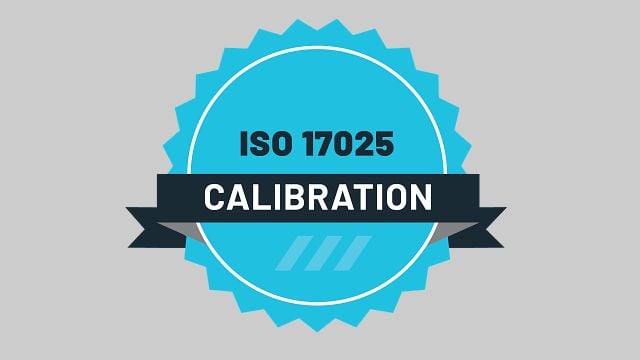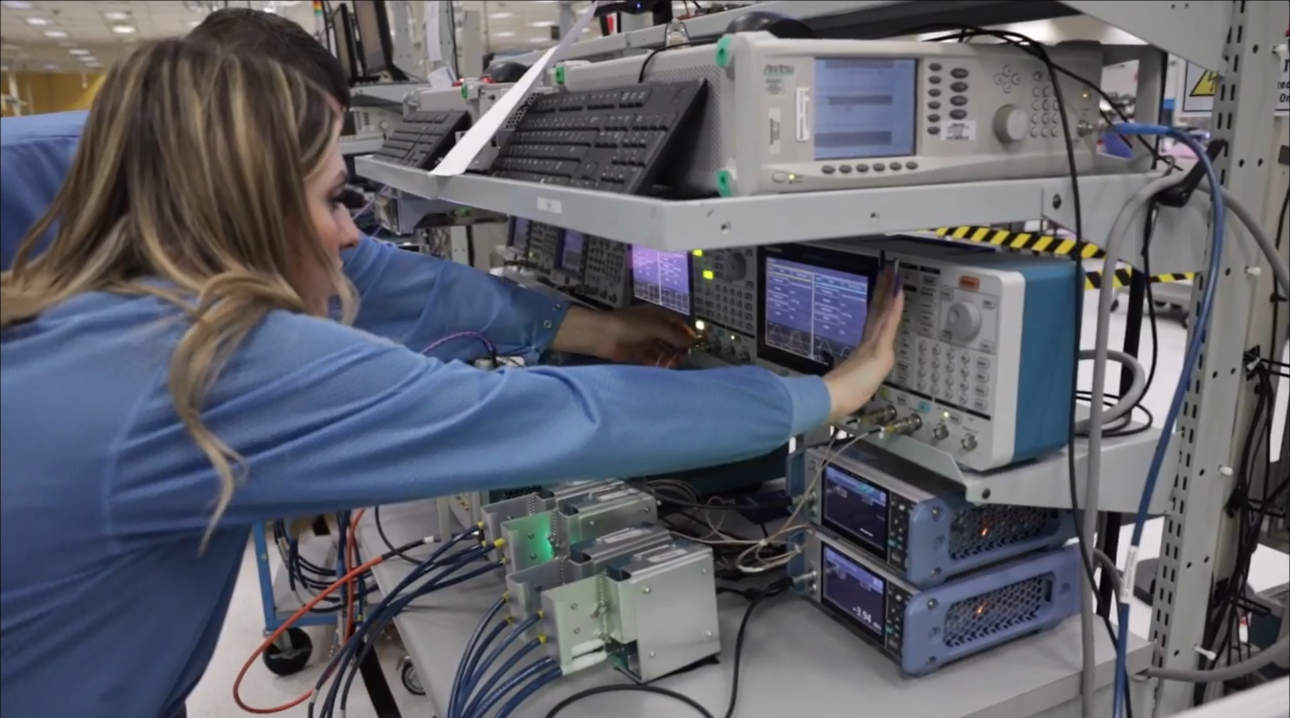What is ISO 17025? Definitions & Calibration Guide

In the intricate world of calibration and testing, precision and quality aren't just goals—they're necessities. At Tektronix, these principles are at the core of everything we do, guiding our commitment to delivering unparalleled services. One of the keystones supporting this dedication is our adherence to ISO 17025, an international standard that plays a pivotal role in the calibration industry. But what exactly is ISO 17025, and why is it so crucial for laboratories like Tektronix? Let's dive in.
Understanding the Meaning of ISO 17025
ISO 17025 is an international standard that sets the bar for the competence of testing and calibration laboratories. It's not just a badge of honor; it's a comprehensive framework that laboratories follow to ensure their testing and calibration tasks are carried out with the highest degree of precision and reliability. Sarah, Tektronix's Quality Calibration Manager, highlights the importance of ISO 17025: "It's an international standard that defines the general requirements for the competence of testing and calibration laboratories." This definition encapsulates the essence of ISO 17025—it's about building a foundation of trust and confidence in the accuracy of laboratory results.ISO 17025 vs ISO 9001 for Labs
It's a common point of confusion, but the distinction is critical for calibration and testing: ISO 17025 accreditation is not the same as ISO 9001 certification. While both relate to quality management, they address fundamentally different goals.
- ISO 9001 (Certification): This standard certifies an organization's overall Quality Management System (QMS). It focuses on ensuring that processes are defined, documented, and consistently followed to meet customer requirements. It is a broad standard applicable to any industry.
- ISO 17025 (Accreditation): This standard includes the QMS principles of ISO 9001 but goes significantly further. It provides Accreditation based on a laboratory's specific Technical Competence. It verifies that a lab not only follows a quality system but also has the qualified personnel, validated methods, and calibrated equipment (like oscilloscopes, DMMs, and spectrum analyzers) necessary to produce precise and technically valid test and calibration results.
The key takeaway is this: ISO 9001 certification alone does not guarantee the accuracy or reliability of a laboratory's measurement data. For critical test and measurement equipment, you need the assurance that comes only from ISO 17025 accreditation.
Key Requirements of ISO 17025 Accreditation
To achieve accreditation, a laboratory must demonstrate competence across several key areas, as defined by the standard (the latest version being ISO/IEC 17025:2017). While the full standard is extensive, the core requirements focus on building a framework of trust in the lab's results.
This framework is built on two main pillars:
- Management System Requirements: This addresses the operation of the laboratory's quality system, including document control, risk-based thinking, impartiality, and continuous improvement.
- Technical Requirements: This is the heart of ISO 17025 and what separates it from ISO 9001. It ensures the technical validity of the results through:
- Personnel Competence: Ensuring all staff are properly trained, qualified, and authorized to perform specific tests and calibrations.
- Measurement Traceability: Proving that all calibrations are traceable to the International System of Units through a national or international standard (like those maintained by NIST in the U.S.). This unbroken chain of comparisons ensures your measurement is accurate.
- Validated Methods: Using calibration procedures that are validated, appropriate for the task, and clearly documented.
- Equipment and Facilities: Using properly maintained and calibrated equipment (the lab's own "master" instruments) in a suitable environment that does not invalidate the results.
Meeting these stringent requirements means a laboratory doesn't just claim to provide accurate results—it has proven its ability to do so to an independent, internationally recognized accreditation body.
Why ISO 17025 Calibration Matters
For laboratories, achieving ISO 17025 accreditation is a rigorous process that involves extensive evaluation of their quality management systems, technical staff, calibration methods, equipment, and more. This thorough assessment ensures that accredited labs like Tektronix operate under the highest standards of quality and operational excellence.
Mike, a Calibration Service Engineer at Tektronix, elaborates on the impact of ISO 17025: "It's all about ensuring the accuracy and reliability of measurement results." In essence, ISO 17025 accreditation is your assurance that a laboratory has met stringent quality standards, ensuring that you can trust the accuracy and reliability of its calibration and testing results.
This assurance delivers practical benefits beyond just peace of mind. ISO 17025 accredited calibration:
- Ensures Global Acceptance: Thanks to the International Laboratory Accreditation Cooperation (ILAC) Mutual Recognition Arrangement (MRA), calibration certificates from an accredited lab are accepted across borders, facilitating international trade and collaboration.
- Mitigates Risk: Using accredited calibration for your test equipment minimizes the risk of measurement errors that can lead to product failures, recalls, or non-compliance in regulated industries (like aerospace, automotive, or medical devices).
- Builds Client Trust: It provides objective proof that your measurements—and by extension, your products or services—meet the highest industry standards for accuracy and quality.
The Tektronix Commitment
At Tektronix, our commitment to precision and quality is reflected in our adherence to ISO 17025. Our laboratories have undergone the rigorous accreditation process, demonstrating our capacity to produce precise and reliable measurement results. Our primary calibration laboratories, for example, are accredited by leading bodies such as the American Association for Laboratory Accreditation (A2LA), ensuring our procedures and competencies are verified against global standards. As Sarah puts it, "ISO 17025 is your assurance that our lab meets stringent quality standards."
This commitment means that when you choose Tektronix for your calibration needs, you're not just selecting a service—you're choosing a partner dedicated to delivering the highest level of accuracy and reliability. "And it means you can trust Tektronix for precise, reliable measurements," adds Mike, underscoring the trust that our clients place in us, thanks to our ISO 17025 accreditation.
Conclusion: Precision and Quality with ISO 17025
In the calibration and testing industry, ISO 17025 isn't just a standard—it's a promise. It's a promise of accuracy, reliability, and unwavering commitment to quality. At Tektronix, we're proud to uphold this promise, ensuring that precision and quality go hand in hand with ISO 17025 in everything we do.
For those who rely on precise measurements in their operations, understanding the significance of ISO 17025 and choosing a laboratory that holds this accreditation is crucial. With Tektronix, you can be confident that you're partnering with a leader in precision and quality, dedicated to meeting and exceeding the highest standards in the industry.
Choose Tektronix, Choose Precision
Ready to experience the Tektronix difference? Discover how our ISO 17025-accredited calibration services can enhance the accuracy and reliability of your measurements. Visit Tektronix Calibration Services today for more information.
Have specific questions about your compliance needs or unique calibration challenges? Our team is ready to help you navigate the complexities of accredited calibration.



